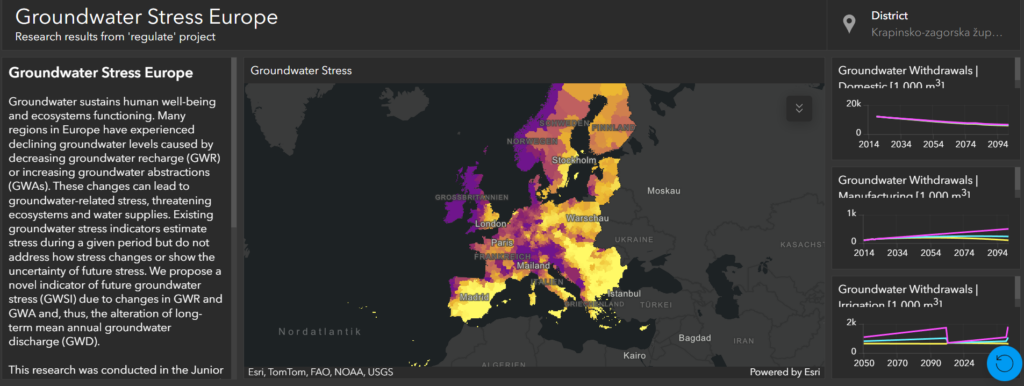Telecoupling & Groundwater
‘regulate’ is a junior research group exploring current challenges in management of the ‘hidden resource’ groundwater in Europe, against the background of long-distance environmental and societal feedbacks (telecouplings). The group addresses dynamics in groundwater quantity and quality that lead to environmental risks, such as droughts and pollution, associated societal conflicts and institutional settings with perspectives from natural and social sciences as well as from stakeholders at the European and local levels.
Four doctoral and two post-doctoral research projects are integrated under the overall research topic of ‘Telecoupled Social-Ecological Systems’. All members of the group are working on joint research questions regarding the social-ecological regulation of groundwater in Europe in interdisciplinary teams and in transdisciplinary collaboration with stakeholders. The research group is based at ISOE in Frankfurt, with Goethe University Frankfurt and the University of Kaiserslautern-Landau as partnering institutions. It is funded by the German Federal Ministry of Education and Research (BMBF) as part of the Social-Ecological Research Framework of FONA.
Groundwater Dimensions Publication Series
We are delighted to introduce our very own publication series, Groundwater Dimensions, under the umbrella of our ‘regulate‘ project. This series serves as a platform to share key aspects of our research endeavors, with a particular emphasis on the innovative work carried out within our transdisciplinary processes. Additionally, it highlights contributions from our talented Bachelor’s and Master’s students, showcasing the depth and diversity of their academic achievements. Through Groundwater Dimensions, readers will gain valuable insights into the complex and multifaceted issues surrounding groundwater management. Explore this collection to discover a detailed overview of our published materials and the impactful research shaping the field.
Interactive Web-Dashboards
Over the past few years, our research on groundwater challenges across Europe has led to a series of scientific publications, practical outcomes for our project partners and local stakeholders, and valuable insights for the broader public. By offering spatial perspectives on groundwater quantity and quality across Europe, we have developed geospatial analyses that are showcased on www.water-land-nexus.com, a platform managed by ISOE – Institute for Social-Ecological Research. Explore the latest findings from the ‘regulate’ project through our interactive web dashboards, which provide insights into groundwater stress, long-distance water transfers, and water consumption patterns.


